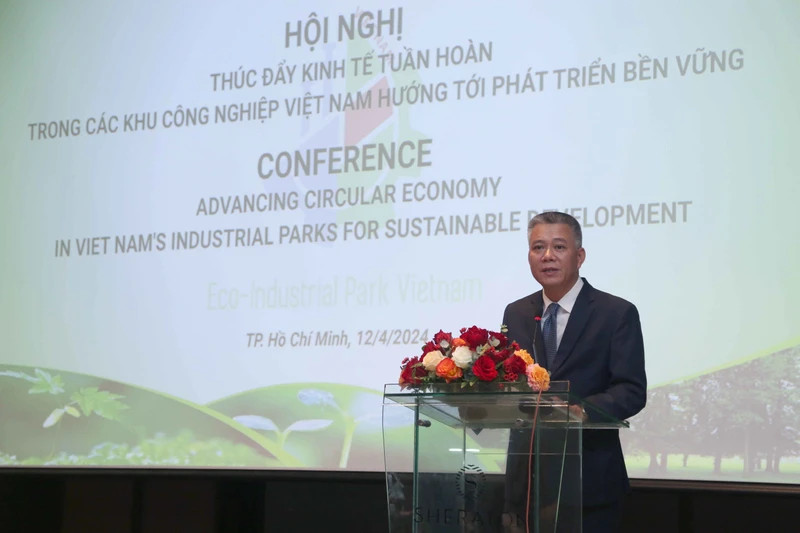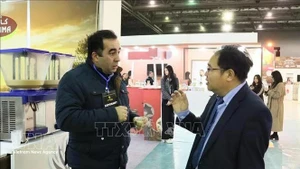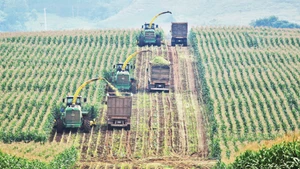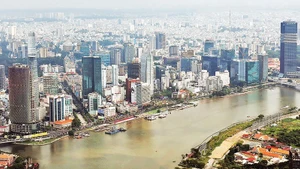The Ministry of Planning and Investment and the United Nations Industrial Development Organization (UNIDO) held a conference entitled “Advancing circular economy in Vietnam’s industrial parks for sustainable development” on the afternoon of April 12.
In his opening speech, Le Thanh Quan, Director General of the Department of Economic Zones Management under the Ministry of Planning (MPI), said that in the more than 30 years of establishment and development, industrial and economic zones have been recognised as playing an important role in fostering socio-economic development, accelerating the process of industrialisation and modernisation, and promoting international integration.
Circular economic development is a trend that many countries around the world consider to be the green industrial revolution of the 21st century and is consistent with the country’s development orientation in the coming period. In particular, the eco-industrial park model is seen as the driving force to boost the circular economy.
According to Quan, the benefits of this transformation are great and long-lasting, but in the short term, many obstacles are preventing the transformation process from taking place as strongly as expected.
Smail Alhilali, Industrial Development Officer at the Department of Environment, UNIDO, said: “Promoting circular economy in industrial zones can help Vietnam to not only reduce environmental impacts but also create opportunities for innovation and green growth.”
Vietnam has a lot of potential. With existing support and available directions, Vietnam should learn from previous countries and successfully implement digital and energy transformation. The country should not only focusing on cleaner production and reduced emissions but also address the consumption issues.
The conference included discussion sessions on the important role of industrial parks in implementing circular economy principles, the opportunities and challenges of integrating circular economy activities between different industries in industrial parks, and others.
















